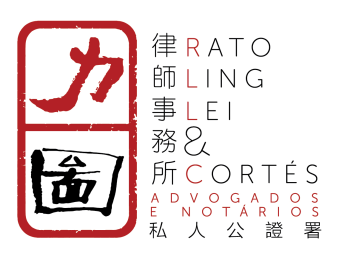Macau's financial system was put in place around a quarter of a century ago when the Financial System Act came into force. It is a sytem that remained largely unchanged until 2017, well after the 1999 transfer of sovereignty from Portugal to China.
Despite several challenges in recent years – due in part to instability in the global financial markets and China's capital controls – Macau's economy has blossomed in the past decade compared to other economies over the same period. As drivers of any economy, the banking and financial services industry has also taken part in Macau's economic expansion. The industry has been steadily growing since the handover. Acting within Macau's legal and financial framework, the banking and financial services industry has remained conventional. However, in late 2016 and throughout 2017, a series of actions taken in relation to payment services reignited debate in Macau's legal and financial framework.
Some critics have labelled the functioning legal and financial framework as a legal impediment to financial innovation and change; however, it could be suggested that the following actions may result in innovation in the industry as a result of Articles 1b and 15d (regarding other credit institutions) and Articles 1a and 118 (regarding other financial institutions) of the Financial System Act.
Recent actions include the following:
- In November 2016 GPAP Macau SA, a public company limited by shares, was authorised under Articles 1a and 118 to provide payment services in relation to bank cards.
- In July 2017 Uepay Macau Sociedade Anónima, a public company limited by shares, was authorised under Articles 1a and 118 for the provision of payment services via the Internet and mobile phone.
Under the Financial System Act, payment services fall into the specific category of financial services that can be provided only by "those financial institutions which have been properly constituted and authorised under the terms of this Act or special legislation",(1) meaning that such services can be provided by fully licensed banks and other credit and financial institutions specifically authorised for such services.
As the concept of banks has been well established internationally, and payment services have long been considered an inherent part of the services that can be provided by any fully licensed bank, no legal operator has raised questions as to the legal capability of banks to provide payment services. However, many legal operators were intrigued by the reference to 'other credit institutions' and 'other financial institutions', as they are non-typical categories and reserved for instances where the entity does not fit into other category (eg, banks, finance companies, financial leasing companies and investment funds managing companies). In February 2006 a payment services company, Macau Pass SA, was authorised to issue and manage electronic purses under Articles 1b and 15d. Together with GPAP and Uepay, they are the three representatives of 'other credit institutions' and 'other financial institutions'.
The reasons for the success of the banking and financial services industry are grounded on the stability of Macau's legal and financial framework, in particular:
- the Finance Companies Law (Decree Law 15/83/M);
- the Financial Leasing Companies Law (Decree Law 51/93/M);
- the Investment Fund Law (Decree Law 83/99/M);
- the Offshore Activity Law (Decree Law 58/99/M);
- the Money Changers Rules (Decree Law 38/97/M); and
- the Cash Remittance Companies Rules (Decree Law 15/97/M).
Other credit institutions and other financial institutions will be regarded as the residual categories foreseen by the legislature in 1993, specifically for creative and imaginative financial operators, leaving an unlimited space for the Financial System Act to adapt to the ever-changing financial world.
For further information on this topic please contact Pedro Cortés or Calvin Tinlop Chui at Rato, Ling, Lei & Cortés Advogados by telephone (+853 2856 2322) or email ([email protected] or [email protected]). The Rato, Ling, Lei & Cortés Advogados website can be accessed at www.lektou.com.
Endnotes
(1) Article 2 of the Financial System Act.
An earlier version of this article first appeared in the May 2018 issue of the Newsletter of the Banking Law Committee of the Legal Practice Division of the International Bar Association, and is reproduced by kind permission of the International Bar Association, London, UK. © International Bar Association.
This article was first published by the International Law Office, a premium online legal update service for major companies and law firms worldwide. Register for a free subscription.




